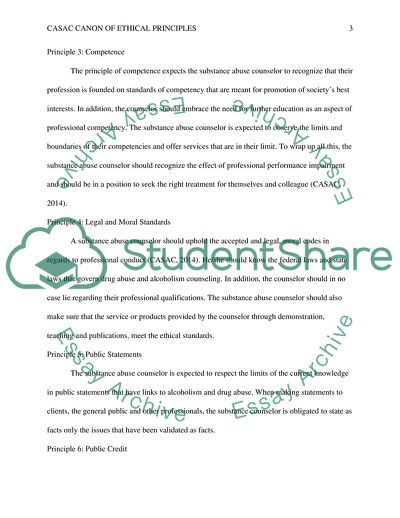Cite this document
(CASAC Canon of Ethical Principles Report Example | Topics and Well Written Essays - 1250 words, n.d.)
CASAC Canon of Ethical Principles Report Example | Topics and Well Written Essays - 1250 words. https://studentshare.org/psychology/1843254-casac-canon-of-ethical-principles
CASAC Canon of Ethical Principles Report Example | Topics and Well Written Essays - 1250 words. https://studentshare.org/psychology/1843254-casac-canon-of-ethical-principles
(CASAC Canon of Ethical Principles Report Example | Topics and Well Written Essays - 1250 Words)
CASAC Canon of Ethical Principles Report Example | Topics and Well Written Essays - 1250 Words. https://studentshare.org/psychology/1843254-casac-canon-of-ethical-principles.
CASAC Canon of Ethical Principles Report Example | Topics and Well Written Essays - 1250 Words. https://studentshare.org/psychology/1843254-casac-canon-of-ethical-principles.
“CASAC Canon of Ethical Principles Report Example | Topics and Well Written Essays - 1250 Words”. https://studentshare.org/psychology/1843254-casac-canon-of-ethical-principles.


